RST Apology to Tasmanian Aboriginal people 2021.

RST Apology to Tasmanian Aboriginal people 2021.
The Southern Ocean is ofren portrayed as rhe last great wilderness. However, the marine living resources of the sub-Antarctic islands haw been harvested for over two centuries. ExploitaLion began with the upper trophic levels and the high-value air-breathing species, before progressing down the food chain to the lower trophic levels and the less valuable nekton and zooplankton. Exploitation in the sub-Antarctic began in the late eighteenth century, nowhere better typified than at South Georgia. At South Georgia exploitation started with Antarctic Fur Seals,Arctocephalus gazella, which were reduced almost to extinction by the mid-nineteenth century. As the fur trade rapidly became uneconomic, new targets were sought and by the end of the nineteenth century, oilers were hunting for Southern Elephant Seals, Mirounga leonina, Southern Right Whales, Eubalaena australis, and some sub-Antarctic penguin species. As these stocks also declined and their commercial exploitation became uneconomic, the focus shifted such that by the beginning of the twentieth century, harvesting for other baleen whales (the so-called rorquals) and Sperm Whales,Physeter macroephalus, was well-established. With the demise of the great whales, other less valuable species were then sought, so that by the latter half of the twentieth century, fishing for finfish and krill had begun. Removal of the upper trophic level species has impacted upon the sub-Antarctic marine system resulting in profound changes, the consequences of which continue to the present. The consequences of such harvesting are reviewed in the context of an ecosystem model that demonstrates some of the expected changes in the marine foodweb that may arise as a consequence of harvesting and how, once harvesting ceases, populations
may recover to their pre-exploitation state.The current status of the South Georgia foodweb is reviewed in the context of these predicted changes. In the period since uncontrolled harvesting ceased, the role of physical environmental forcing factors has been recognised and found to be key to any understanding of marine foodweb dynamics. These two major forces, historical exploitation and climate change, may act in concert to alter ecosystem dynamics. Disentangling these confounding drivers may be difficult and complex, but because of the relatively well-documented history of exploitation the sub-Antarctic may offer one location where it is feasible.
Royal Society of Tasmania, RST, Van Diemens Land, natural history, science, ecology, taxonomy, botany, zoology, geology, geography, papers & proceedings, Australia, UTAS Library
Published Papers

The Royal Society of Tasmania acknowledges, with deep respect, the traditional owners of this land, and the ongoing custodianship of the Aboriginal people of Tasmania. The Society pays respect to Elders past, present and emerging. We acknowledge that Tasmanian Aboriginal Peoples have survived severe and unjust impacts resulting from invasion and dispossession of their Country. As an institution dedicated to the advancement of knowledge, the Royal Society of Tasmania recognises Aboriginal cultural knowledge and practices and seeks to respect and honour these traditions and the deep understanding they represent.

On 15 February 2021, the Royal Society of Tasmania offered a formal Apology to the Tasmanian Aboriginal people.